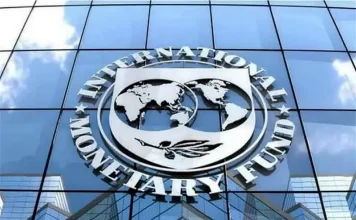The International Monetary Fund (IMF) has issued a warning, stating that Nigeria’s continued fuel and electricity subsidies would cost the country N2.33 trillion in 2024, or 3% of its GDP.
This was highlighted in the report of the just concluded staff article IV Consultations, issued by the IMF country office in Abuja, on Tuesday
According to the Fund, “The capping of fuel pump prices and electricity tariffs below cost recovery could have a fiscal cost of up to 3 percent of GDP in 2024.”
The IMF’s three percent estimate comes to N2.33 trillion, based on the country’s actual GDP of N77.93 trillion.
From February 12–23, 2024, a team led by Axel Schimmelpfennig, the IMF Mission Chief for Nigeria, traveled to Lagos and Abuja to have talks in preparation for the 2024 Article IV Consultations with Nigeria.
Prioritizing the implementation of social safety nets through the cash-transfer program over fuel subsidies and energy tariffs below cost recovery, the staff advised the federal government.[ez-toc]
According to the report, “Recently approved targeted social safety net program that will provide cash transfers to vulnerable households needs to be fully implemented before the government can address costly, implicit fuel and electricity subsidies in a manner that will ensure low-income households are protected.
“Nigeria’s economic outlook is challenging. Economic growth strengthened in the fourth quarter, with GDP growth reaching 2.8 percent in 2023.
“This falls slightly short of population growth dynamics. Improved oil production and an expected better harvest in the second half of the year are positive for 2024 GDP growth, which is projected to reach 3.2 percent, although high inflation, naira weakness, and policy tightening will provide headwinds.
“With about 8 percent of Nigerians deemed food insecure, addressing rising food insecurity is the immediate policy priority.
“In this regard, staff welcomed the authorities’ approval of an effective and well-targeted social protection system. The team also welcomed the government’s release of grains, seeds, and fertilizers, as well as Nigeria’s introduction of dry-season
“Recent improvements in revenue collection and oil production are encouraging. Nigeria’s low revenue mobilization constrains the government’s ability to respond to shocks and to promote long-term development.
“Non-oil revenue collection improved by 0.8 percent of GDP in 2023, helped by naira depreciation. “Oil production reached 1.65 million barrels per day in January as the result of enhanced security.”
